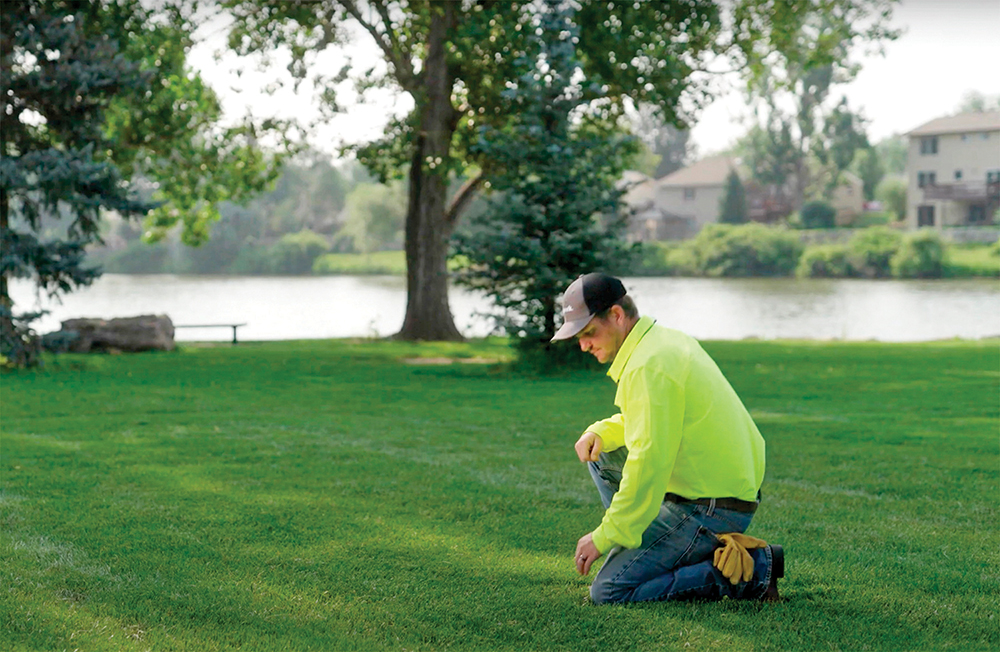
(StatePoint) Late summer is a time of year when yards see a lot of foot traffic. Whether you’re hosting parties and events or your kids are running all over the lawn, your grass needs to be in tiptop shape.
In a recent Backyard Life video, the multimedia destination of lawn care equipment manufacturer Exmark, product manager Chris Lamme offers insights for keeping grass healthy and lush all season. He says: “When it comes to maintaining a beautiful lawn, the main factors to consider are the height of your cut and the frequency of cut, and that starts with knowing what type of grass you have.”
According to Lamme, these three strategies can help you cultivate a healthy lawn:
- Know your grass. Before you start mowing, it’s crucial that you know what grass type you’re working with. Different areas of the country will have grasses specific to their climates. Warm-season grasses, found in southern states, should be cut to a height of 2 to 3.5 inches—on the shorter for Bermuda and Centipede grasses and on the longer side for St. Augustine and Zoysia grasses. Cool-season grasses, found in northern states can be trimmed down to 3 to 4 inches—on the shorter side for Bluegrass and Ryegrass, and on the longer side for Fescues. While moisture, sun exposure and temperatures can vary cut height needs, typically grasses should be mowed to the upper end of their recommended cut heights during the heat of the summer. If you’re not sure of your grass type or you live in the transition zone, stick to the rule of thumb of cutting one-third of the grass’ height.
These guidelines are important, as mowing too short can damage the roots, leaving your grass unable to absorb nutrients from the soil. However, if you let it get too long, you’re going to bog down the mower when you do get around to the task.
- Don’t over- or under-mow. Over- or under-mowing your lawn can lead to unhealthy grass and bare patches, so consider how regularly you mow. Strive to mow when the height of the grass grows to the point that one-third of its length will be mowed. So, if you’re mowing to a height of two inches, let the grass grow to three inches before mowing. Mulching is also helpful during the summer, as it keeps moisture and nutrients on the lawn, reducing the need to water and fertilize. Pay attention to what your lawn needs, don’t just fall into a strict routine.
- Change up the direction. Mowing in the same direction or pattern every time can damage your grass. When you mow too often in one direction, it can push the grass down and give you an uneven cut, even leaving ruts in your yard if you’re not careful. Be sure to change up the patterns and direction of mowing to ensure a nice, even cut quality every time.
To view the video as well as to access more tips on all things outdoor life and learn your turf zone, visit exmark.com/backyard. Your Exmark dealer is another good resource for information and can provide the parts and service you’ll need down the line to keep your mower in good repair for a healthy lawn.
Now that you’re armed with these summer lawn care tips, you’re ready to get out there and start mowing!









